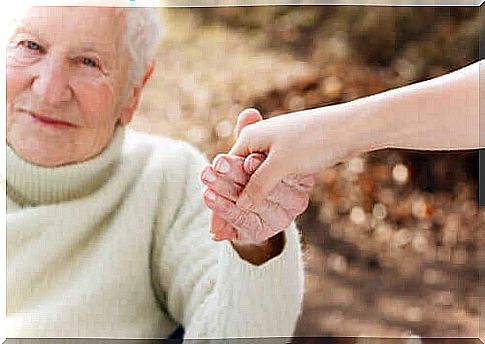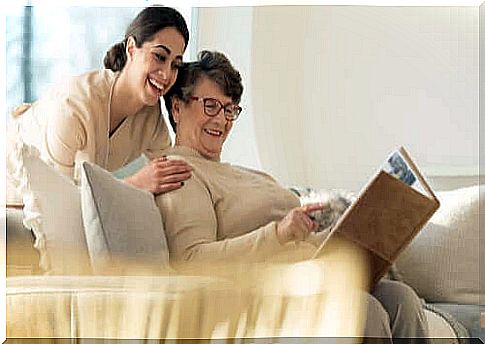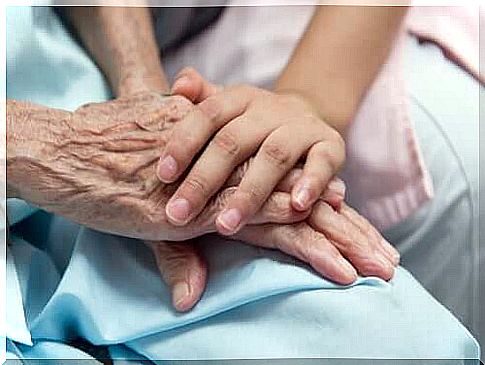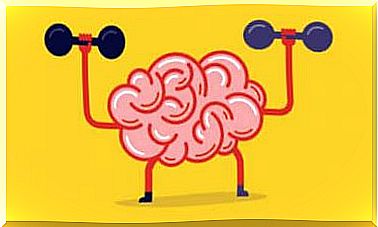Caring For Dependent People

The care of dependent people is an important issue in many areas : social, family and individual. More specifically, we are talking about people who are dedicated to taking care of those in need.
In this sense, what does care mean? What types of caregivers are there? Care is understood as “providing help to dependent people so that they feel that their physical, social and emotional needs are met” (IMERSO, 2009).
It is worth mentioning that there are two main types of caregivers: formal and informal caregivers . The formal caregiver refers to professionals who dedicate themselves, as a work activity, to this scope.
They are mainly primary care technicians and nursing assistants. Informal caregivers are usually family members, friends or even neighbors in some cases.
Rogero defines that informal care is the care and attention fundamentally given by family members and other close people, but also by care agents who, altruistically, are willing to take care of people who have some degree of incapacity or dependence.
According to the World Health Organization (1999), long-term care is mostly carried out by informal caregivers – that is, family members, friends or neighbors – health professionals or both, with the objective that the dependent elderly person can have the best quality of life possible, always paying attention to their individual preferences, to the autonomy of the elderly and, last but not least, to human dignity.

The role of the caregiver in the care of dependent people
Promotes basic activities of daily living
When we think about the concept of the caregiver, perhaps the first thing that comes to mind is the basic activities of daily living. The care of dependent people is usually aimed at helping them to perform some simple tasks, such as eating, going to the bathroom, taking a shower and getting dressed.
In this sense, the caregiver creates a personalized plan of attention and care according to particular needs, given that the degree of dependence and personal circumstances may vary from one person to another.
Creates a climate of trust
Trust is the security that someone has in relation to another person, as to how they will act in certain situations. It consists in being sure of how the other is going to behave.
Thus, perceiving a climate in which the person feels confident, calm and cared for is a fundamental factor for those who receive help and also for their families.
Definitely, the caregiver generates a feeling of trust and security in the environment, both for the person receiving care, who feels safe and protected, and for family members or other family members when we talk about the informal caregiver.
As a result, the family member thinks “I know he is in good hands”, “if something happens to him, they will notice it quickly and will act immediately”.
Offer affection and support
The caregiver provides companionship and emotional support for the person being cared for. In a world where work occupies a large part of our day, people who are accompanied by someone who takes care of them do not feel so much the loneliness and absence of loved ones.
As a result, caregivers offer this companionship that the family cannot provide all hours of the day.
Favors the maintenance of autonomy
Although there is a degree of dependence on a person’s health, it is important that the caregiver’s work is to allow autonomy to be maintained as much as possible in all activities where this is possible.
For this, the caregiver must encourage and motivate the person to do everything they can do, understanding that to achieve this, the person may, at times, need to make a great effort.

Maintains the link with the external environment
Depending on the degree of independence, the caregiver helps the person to maintain, enjoy and take care of their social relationships, something that is essential to avoid isolation.
With the help of new technologies, caregivers can keep the elderly active in their environment, help them to participate in some activities and relate to their family group, their friends or neighbors in their city.
Improves quality of life
To conclude, it is necessary to emphasize that the care of dependent people respects their integrity and dignity, promoting their autonomy.
Caregivers, day after day, perform a fundamental work in support of our society. They perform a function that, unfortunately, is not always recognized.
For this reason, today we try, in this article, to emphasize the importance of caregivers, both in the professional and family spheres. In a way, they become the pillars of those who need help, improving their quality of life and well-being.









